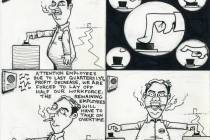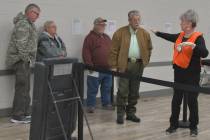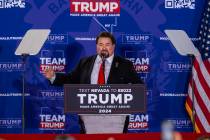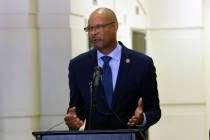Democrats prepare to erode first amendment
Over the years, the U.S. Supreme Court has ruled in various campaign finance cases that money is speech (Buckley vs. Valeo 1976), that corporations are persons entitled to first amendment protection in political expression (Citizens United vs. Federal Election Commission 2010), and that aggregate limits on campaign contributions are a violation of the first amendment (McCutcheon v. FEC 2014).
The overall result is that the rich can pour all the money they want into political campaigns, though they may have to jump through some hoops to do it. These rulings are creating an unbalanced situation in which ordinary citizens cannot begin to compete with the rich in getting the government to respond to their concerns — redress of grievances.
As the court rulings unfolded, we got occasional looks at what the future might hold. In 2012, for instance, Republican presidential candidate Newt Gingrich could not attract enough support to make any kind of impact, but his campaign was kept alive by the Nevada billionaire Sheldon Adelson. In state after state, Republican primary voters kept ruling Gingrich out of the field and Adelson and his family kept bringing him back to life. It was an artificial candidacy, but it interfered with the GOP presidential delegate selection process that year.
After the McCutcheon ruling came down in April, constitutional amendments were introduced on Congress to carve out a campaign finance exception to the first amendment.
The alarm was legitimate. As I wrote in this space in April, the Court is elevating money to such a hallowed place in our politics that it may be leaving the nation no other choice than to create an exception to the first amendment in order to create a fair campaign system.
This is as great a source of concern as the court’s rulings. People are always calling for exceptions to the first amendment. Nazi hunter Simon Wiesenthal once said the amendment is a beautiful thing but that an exception was needed for “hate speech.”
Chicago law professor Eric Posner argues, “Americans need to learn that the rest of the world — and not just Muslims — see no sense in the First Amendment.” He doesn’t make a case, just lists in loaded language offensive examples of speech that are supposed to outrage us. More to the point, he’s wrong. While there are those around the world who consider the first amendment senseless, in other circles it is considered a marvel of governance unmatched by any other nation.
Democrats John Kerry (then still a senator) and John D. Rockefeller have talked about exceptions to the first amendment for foreign policy purposes.
Former reporter Sarah Chayes has written that if criticism of Muslims causes “imminent violence or lawbreaking,” such speech should be curbed.
And now, Democrats have gone to work raising money to push a campaign for passage of an exception to the first amendment. In endorsing such a change, Nevada’s U.S. Sen. Harry Reid said, “It is unacceptable that the recent Supreme Court decisions have taken power away from the American voter, instead giving it to a select few.”
It is. But where has the preparation been for such a historic change? Why were no hearings held to explore the full implications of the court rulings, to try to determine if there were less extreme methods of solving the problem? Why weren’t constitutional scholars consulted, research done?
There may be no other way to curb the court’s excesses. But the consequences of carving up the first amendment are momentous. The Democrats went from McCutcheon one week to introducing constitutional amendments the next.
The first amendment is part of our birthright. We are entitled to more than polemics, fundraising, and haste before it is tampered with.
Dennis Myers is an award winning journalist who has reported on Nevada’s capital, government and politics for several decades. He has also served as Nevada’s chief deputy secretary of state.
















